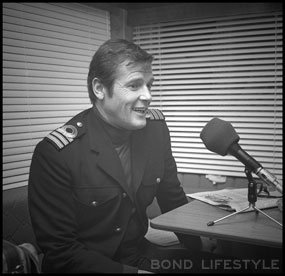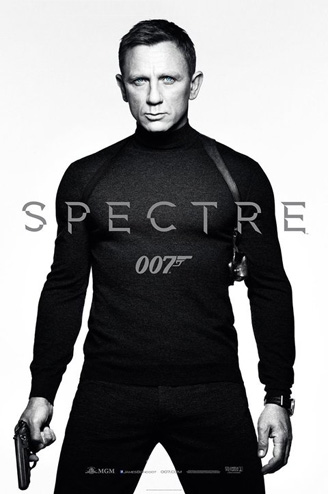BBC Archive releases television and radio programmes exploring enduring appeal of Fleming's literary creation and cinematic favourite James Bond
BBC Archive is releasing a collection of television and radio items examining the Bond phenomenon through the eyes of those who helped shape the world's most popular secret agent in both print and film.

Items in the collection reveal the origins, development and more recent literary revival of the suave spy figure at the heart of the longest-running and most financially-successful English-language film franchise to date.
The collection also features rare behind-the-scenes material providing fans with a window into the world of Bond on film. An episode of Whicker's World - made available for the first time since its initial broadcast in 1967 - provides a unique glimpse of the personalities and production processes of You Only Live Twice and a photo gallery provides snapshots of life on the set of 1976 classic The Spy Who Loved Me.
Radio items within the collection provide a unique insight into the creative genius of Bond author Fleming. In a 1958 BBC Home Service broadcast, listeners hear Fleming and fellow ex-journalist Raymond Chandler - pioneer of the modern private detective story and creator of protagonist Philip Marlowe, later played by Humphrey Bogart - discussing the ingredients which make up the perfect thriller.
Another radio item in the collection looks at the essential cinematic components of Bond. Director of Goldfinger, Guy Hamilton, discusses the challenge of taking to the director's chair of the well-worn genre and the perils of delivering a lazy, formulaic film. In the recording of 1974, he talks of the importance of telling the story in familiar international terms: "... adventure, excitement, pretty girls, laughs, thrills, suspense" whilst balancing with delivering authentic sets, stunts and compelling villains.
The collection also reveals the aspirational thread to both the novels and films. In a BBC Radio 4 item of 2008, the historian David Cannadine places the Bond novels in their historical context of depressing post-war austerity in Britain and a very rapid imperial decline.
In another, director Guy Hamilton notes the golden production rule to put the money up on the screen to make the films look as expensive and spectacular as possible. A 1990 edition of BBC Radio 5's Cult Heroes focuses on the importance of the cars, clothes, gadgets, gastronomy, and women - aspects of conspicuous consumption which gave the audience a window to the gilded world that Bond inhabits.
The collection also makes available popular discussions which explore the enduring appeal of the franchise. Fans remark on the familiar title sequence and Lois Maxwell - the actress who played Miss Moneypenny in many of the films - presents a guide to the theme songs in a programme from 1995.
A later edition of Back Row suggests that the score can be integral to box-office success. Throw in some double entendres and the all-important Bond girl and the recipe is complete: Alan Whicker interviews the girls of You Only Live Twice on exotic Japanese location and a 1995 Radio 4 Woman's Hour discussion considers the changing role of the Bond girl within the films.
The collection also points to the longevity of the franchise. A Radio 4 celebration of the centenary of Fleming and an interview with Sebastian Faulks - author of Bond novel Devil May Care - focus on the renaissance of Bond in literature.
BBC Archive executive producer, Julie Rowbotham, says of the collection: "James Bond is such an iconic part of British culture and we are thrilled to be able to release these programmes re-examining the legend and exploring why successive generations have taken 007 to their hearts."
The fascinating collection of programmes and images is available from 16 December on the BBC Archive website.













